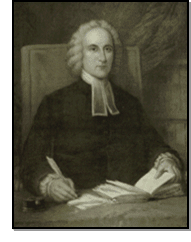Henry David Thoreau
Thoreau was not a systematic philosopher but advanced his thought by embedding his ideas in the context of descriptive narrative prose. He is best known for Walden and Civil Disobedience, but wrote many other articles and essays. Thoreau's Civil Disobedience influenced later nonviolent reformers, Gandhi and Martin Luther King, Jr. [http://plato.stanford.edu/entries/thoreau/].
Thoreau studied a wide range of philosophical literature, from classical Greek and Roman authors to modern philosophers and the writings of his contemporaries. He was one of the few Western writers to explore ancient Eastern thought. He also gained insights from Taoism and other ancient Chinese traditions. Thoreau developed his own unique philosophy, particularly through his "experimental" austere life in nature at Walden. Thoreau limited his possessions to bare necessities. He left behind the trappings of modern culture, such as cities, economic and social life, customs, traditions, and what people generally conceive as "needs." Thoreau understood nature as a direct manifestation of deity and spirituality. He tried to listen to the language of all things and to see God in nature. Nature was for him a living cathedral where human spirituality was cultivated without separating the aesthetic and the sensual [http://www.walden.org/thoreau/]
During his Walden experiment, Thoreau reduced life to the bare essentials without the necessities of life. He grew only as much food as he needed and worked enough to provide shelter. He led his life apart from the influence of society. He was arrested for not paying his poll tax in protest of the Mexican War. He wrote Civil Disobedience after his night in jail. Thoreau questioned who had primacy, the laws of a state or a man's conscience. This was his stand against the effects of "The Establishment." Thoreau felt society had undue influence on an individual achieving ones own self-reliance and true self [http://www.newworldencyclopedia.org/entry/Henry_David_Thoreau].
In 1967, a study in Time Magazine on hippie philosophy credited the foundation of the hippie movement as far back as the counterculture of the Ancient Greeks. Other notable inflences of the hippie movement were the religious and spiritual teachings of Henry David Thoreau, Buddha, St. Francis of Assisi, Gandhi, and J.R.R. Tolkien. By 1965, hippies had become and established social group in the U.S. and the movement expanded as far as Europe, Australia, Canada, New Zealand, Japan, Mexico, and Brazil. Hippie culture spread worldwide through music, literature, dramatic arts, fashion, and visual arts. Hippies rejected established institutions, criticized middle class values, opposed nuclear weapons and the Vietnam War. They embraced aspects of Eastern philosophy, championed sexual liberation, were often vegetarian and eco-friendly, promoted the use of psychedilic drugs which they believed expanded one's consciousness. Hippies created communes as a means of avoiding societies influences. Hippies opposed political and social orthodoxy and chose a gentle and nondoctrine ideology that favored peace, love and personal freedom which is expressed in The Beatles' song "All You Need is Love". Hippies perceived the dominant culture as a corrupt, monolithic entity that exercised undue power over their lives, calling this culture "The Establishment." Hippies were seekers of meaning and value and were described as a new religious movement [http://www.hippy.com/modules.php?name=News&file=print&sid=9] [http://www.mtholyoke.edu/courses/rschwart/hist255-s01/boheme/hippies.htm].
The hippies were heirs to a long line of bohemians that included William Blake, Walt Whitman, Ralph Waldo Emerson, Henry David Thoreau, Herman Hesse, and Oscar Wilde. Hippies don't impose their beliefs on others but seek to change the world through reason and by living what they believe. Once a hippie always a hippie. In the same way, Thoreau developed his own unique philosophy through his "experimental" austere life in nature. Thoreau's life and writings have continued to provoke generations of readers to contemplate their obligations to society, nature and themselves. Walden has powerfully affected environmentalists, even today, for Thoreau's crucial environmental concerns regarding the natural habitat [http://www.newworldencyclopedia.org/entry/Henry_David_Thoreau].
































